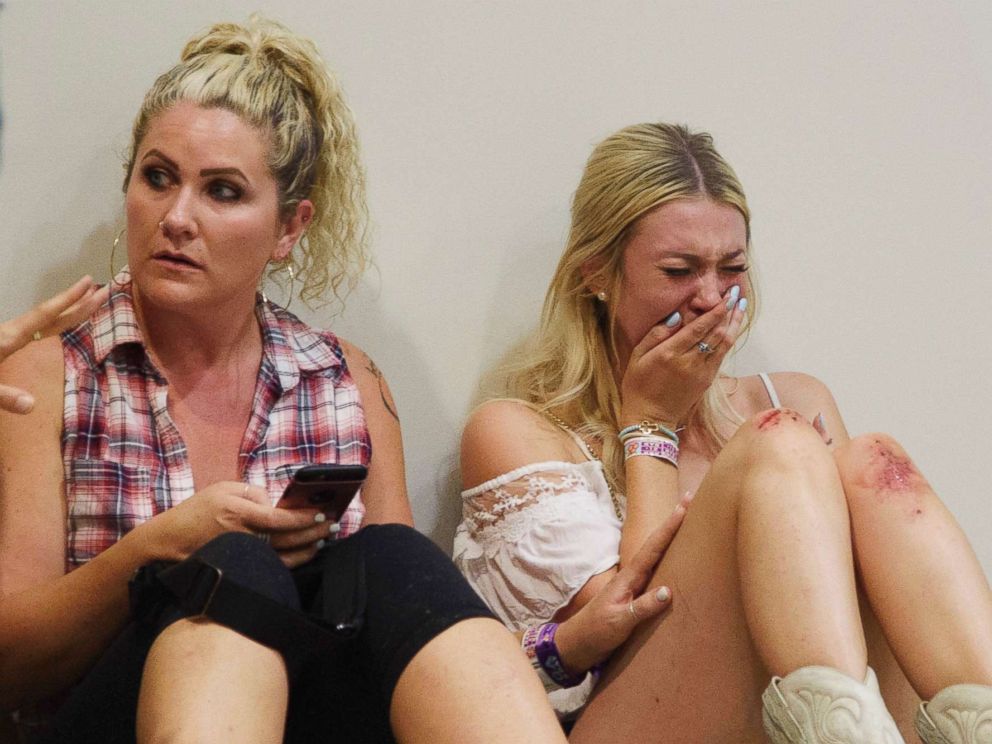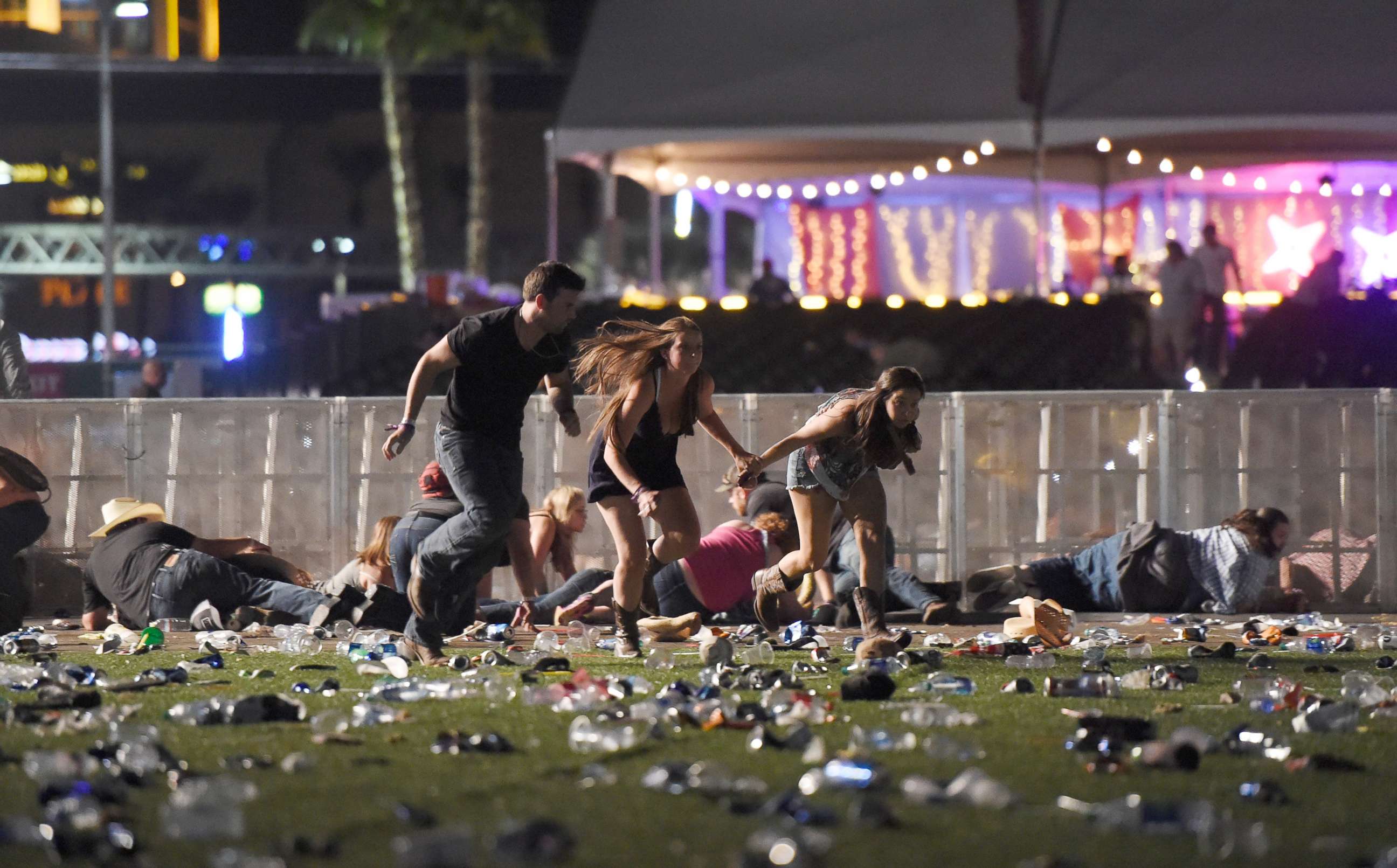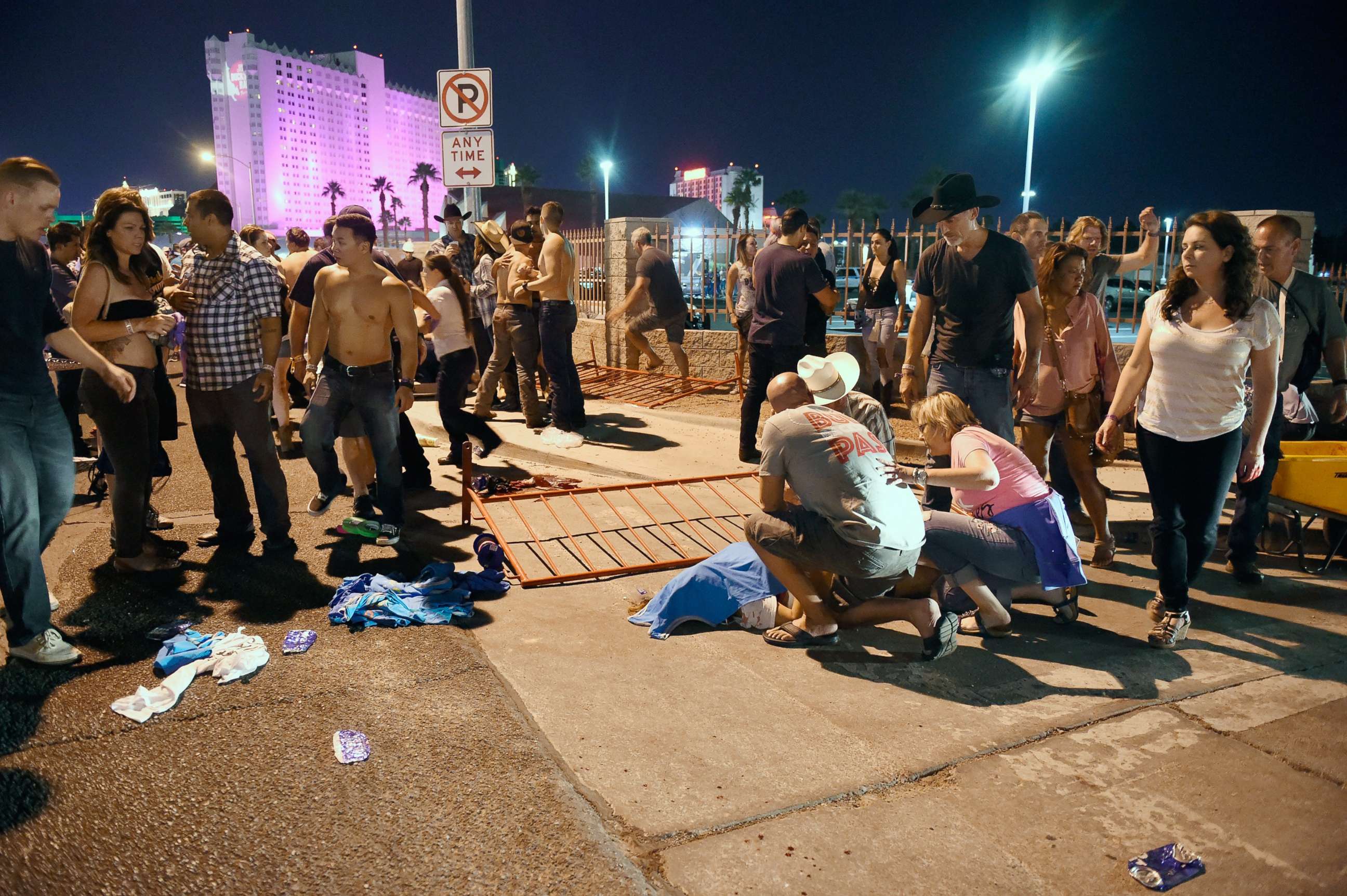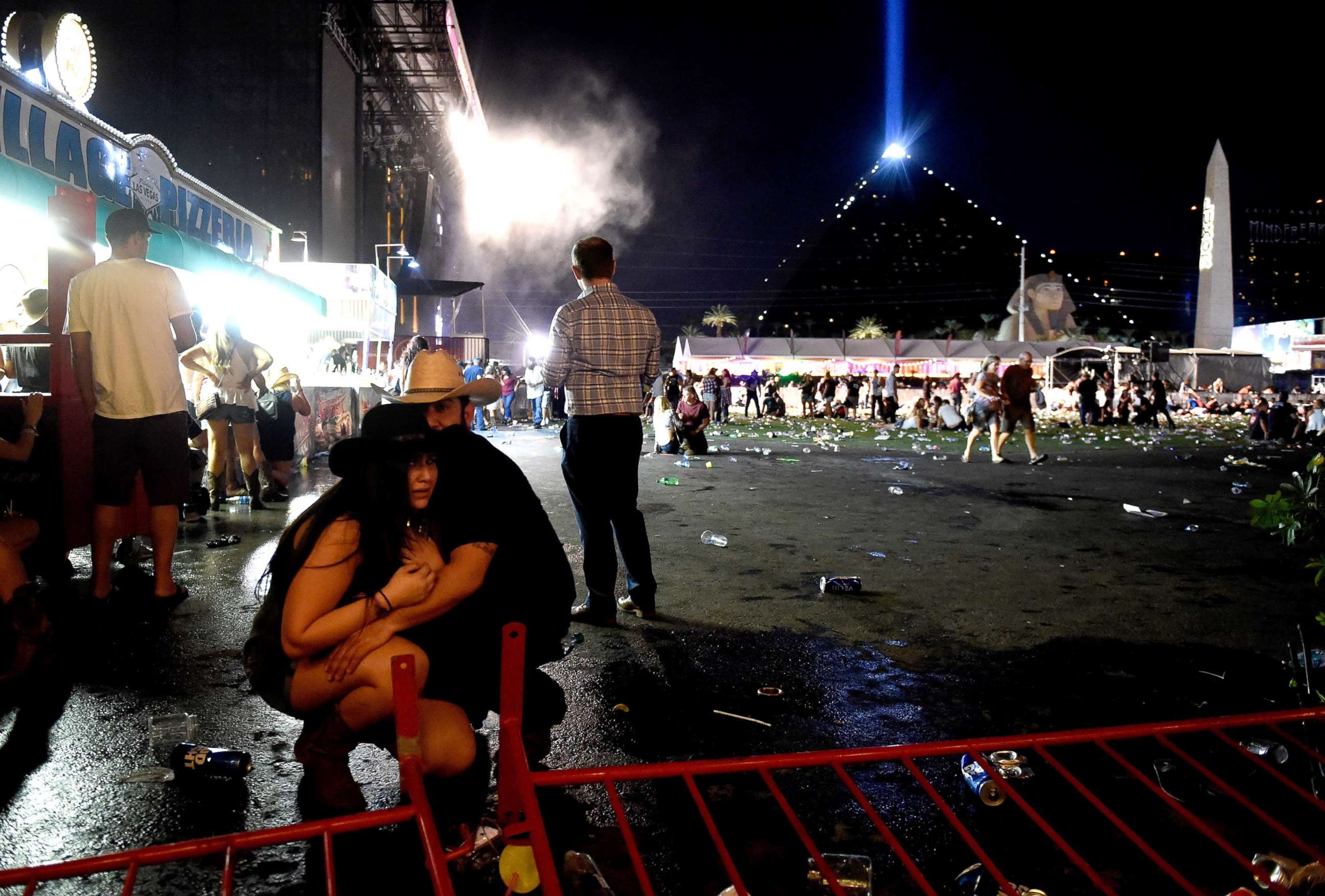After surviving the mass shooting in Las Vegas, stages of trauma could follow
Experts who responded Sandy Hook, Virginia Tech, offer tips on how to cope.
— -- Adam Payne was among the many concertgoers forced to run for their lives late Sunday when a shooter opened fire during the Route 91 Harvest Music Festival in Las Vegas, killing at least 58 people and injuring 515.
"Everything hit the fan," Payne told ABC News.
He said he carried his wounded friend to safety and felt "very lucky" to have escaped alive.
Another survivor, Brian Claypool, said he was able to flee the terrifying scene as shots rung out from the Mandalay Bay Resort and Casino. Claypool said he saw two people get shot down and spoke to other witnesses who said they watched their friends die.
He said it was hard to figure out where to run. "It was chaos everywhere."

But for the survivors of the Las Vegas shooting and their loved ones, emotional trauma is likely to follow, experts say, and it can come in several phases.
"In this early time, right after this incredible tragedy has occurred, there are different stages of grief between shock, extreme sadness, perhaps angry that this has occurred," Donna M. Morrissey, spokesperson for the American Red Cross told ABC News. "That's all normal. That's why it's important for us to dig deep and bring in the mental health experts who are trained and licensed to help deal with this."

Morrissey responded to the scenes in Newtown, Connecticut following the shootings at Sandy Hook Elementary School, Pulse Nightclub in Orlando, Florida, and also tended to families in the immediate aftermath of the Boston bombing. Morrissey said she and the Red Cross offered mental health counseling and family assistance centers where individuals would wait for news about their loved ones.
Following Sandy Hook alone, 200 trained mental health counselors arrived at the scene, she said.

Morrissey stressed that similar support is needed in the wake of the mass shooting in Vegas.
"These are the initial hours where we are learning about what has occurred, but as the weeks go on it's important for people to have self care," she said, "look at their loved ones around them, their kids, talk about it."
Dr. Gerard Lawson, president of the American Counseling Association, said although not all survivors will suffer from psychological disorders, many will have "challenging reactions."
"The most difficult thing that they will struggle with is, ‘Why did I survive when someone else didn’t? Was there something that I did that someone else didn’t?’: Lawson said. "It sets you up for [the thought] that your life is either more or less important than someone else’s."
Surviving an attack can also shake a person's sense of security in everyday situations.
"Whether you’re going to school in the morning or a concert at night, it shatters the sense of safety in the world," he said. "It breaks the understanding that ‘My life will not be in danger.’"

Lawson offered counseling in Virginia following the 2007 shootings at Virginia Tech. He said that, like that attack, many people could move into some emotional changes following the shooting in Las Vegas, which can linger over the long term.
Here are some difficulties survivors may experience in the aftermath, according to Lawson.
Heightened sense of arousal
Individuals may be tuned into noises or sudden movements that can trigger them to become startled. Similar smells can also trigger emotional reactions.
Disruption of sleep
Images may come back to them as dreams at night, or during the day, like a sort of déjà vu.
"Not flashbacks, but a feeling that things are happening all over again," Lawson said.
Withdrawal
Survivors of trauma may close up and choose to not talk about their concerns.
"They may become numb to their emotions," Lawson said.
Coping mechanisms and self-care for trauma
Avoid quick fixes such as drugs and or alcohol.
Mindfulness
Lawson suggests managing thoughts through deep breathing and physical exercise and practicing "self-talk."
"Be sure that you can assure [yourself] that, 'I am safe right here in my home. Right here, right now, I am as safe as I can be,'" he said.
Avoid overexposure to media
Limit time spent watching news footage in the aftermath of the shooting. Lawson recommends checking in maybe once a day, "Rather than every 10 minutes." Another option is to ask a friend to share any major developments.
Seeking a counselor
Although the idea of when to actually seek help depends on each individual, Lawson suggests following this rule: "If it's beginning to get in the way of your day-to-day, or keeps you from enjoying your life, it's time to talk to a professional."
If you are a friend or family member of a survivor, Lawson said it's best to "follow their lead."
"It's important to spend time together," he added. "It doesn't mean you have to talk about the trauma. Make yourself available and let them know if they want to talk about it, that you're available to listen. Encourage them to seek help if this is something that starts to linger."
Morrissey echoed this advice.
"If you notice that somebody is really unable to continue with their daily activities or retreating to their own space and they're not able to come to grips with what's going on, then that's the time you reach out and seek help," she said.




